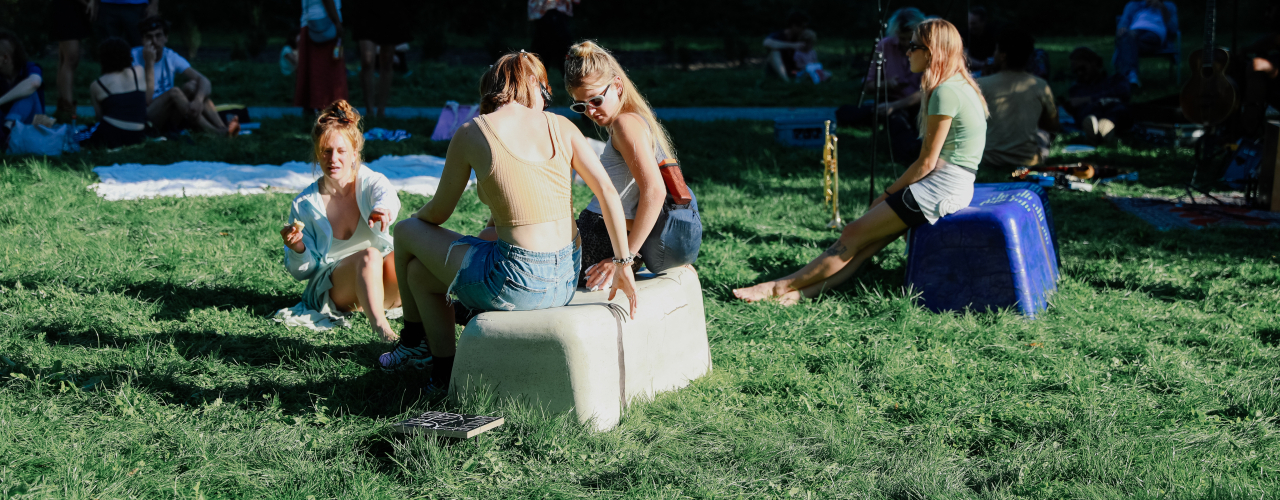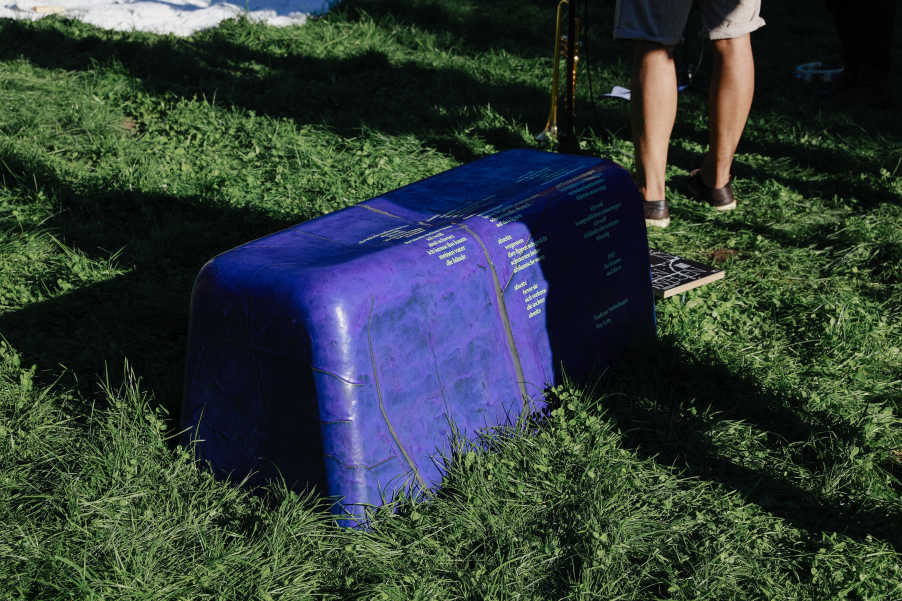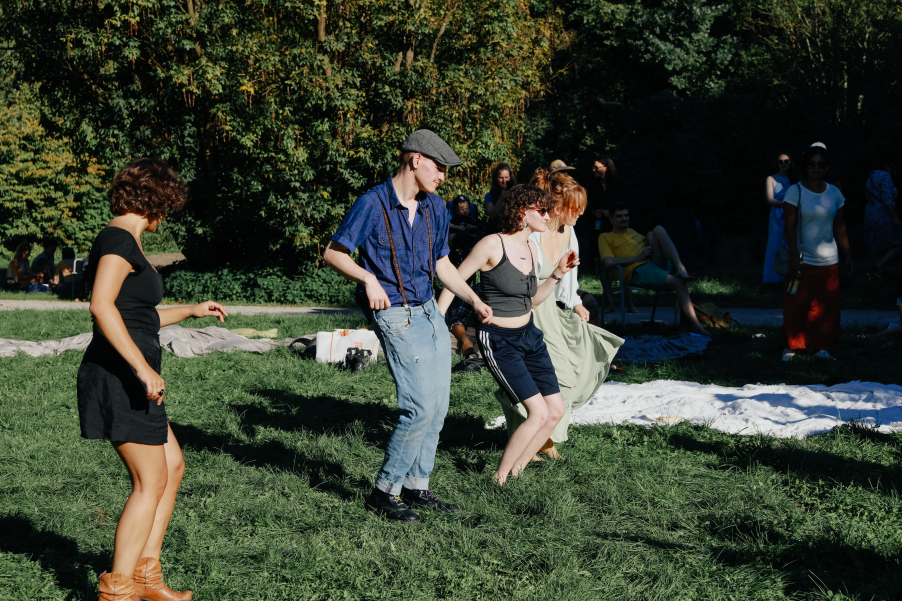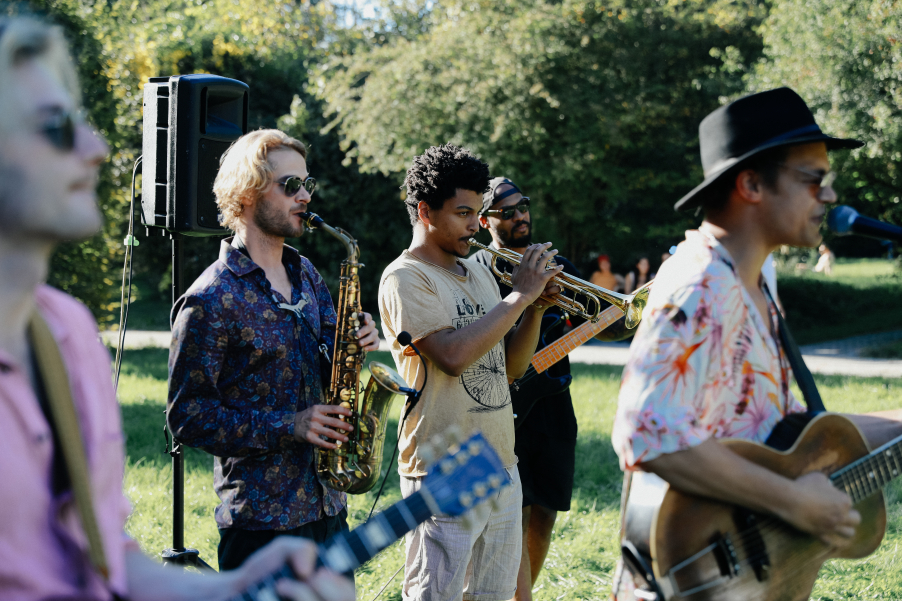The starting point for our reflections are the often forgotten biographies of the children of Black US soldiers and German women after 1945, which show that the end of the war was not a real new beginning for society.
An installation consisting of ceramics containing text fragments by May Ayim and Ika Hügel-Marshall is being created for this purpose. The work “between the paths” takes up the idea that gaps in conventional historical narratives become fine cracks through which new perspectives become visible and tangible. The starting point is the biographies of the children of Black American soldiers and German women who were born in West Germany after the liberation from fascism. These stories make it clear that the end of the Second World War was not really a new beginning, either socially or in terms of the culture of remembrance. How can we make the voices of those affected visible and thus enable an artistic examination of the post-war period with regard to colonial and racist continuities without reproducing stereotypes?
Opening on Saturday, 20 September 2025 from 2.30 pm
with a speech by Dr. Silke Hackenesch and a concert by the band Buck Roger & the Sidetrackers
Accompanying event on 8 November 2025 at 2.00 pm at FLORIDA Lothringer 13
with Dr. Azziza Malanda
ÜberLebenswege – Black German history(ies) of the post-war period.
An interactive reading with contemporary testimonies. Please register to attend at: maykollektiv@posteo.com
Between 1945 and 1955, around 68,000 children were born in West Germany and West Berlin to mothers who were German civilians and fathers who were Allied soldiers. Around 5,000 of these children had a Black father.
Historian Azziza B. Malanda dedicates her book “ÜberLebenwege” to the post-war generation of Black Germans. Malanda dedicates her book ÜberLebenswege. In it, she focuses on the memories and experiences of those who grew up in West German children’s and youth homes after 1945. For her research, Azziza B. Malanda analyzed extensive archive material, examined contemporary sources and conducted interviews with contemporary witnesses. As descendants of black US occupying soldiers and white German civilians, the women and men interviewed experienced exclusion, stigmatization and racial discrimination in the course of their lives – both inside and outside the homes. Against this background, they developed strategies in early childhood to survive in the home and in society.
The event is an interactive reading with contemporary testimonies, in which the author and participants together remember and tell Black German history(ies) of the post-war period and make their traces visible up to the present day.
Janis Strobl (*1995), Rebekka Feicht (*1996) and Nils Peisker (*1995) live and work in Munich and founded may kollektiv in 2024.
#publicartmuc




